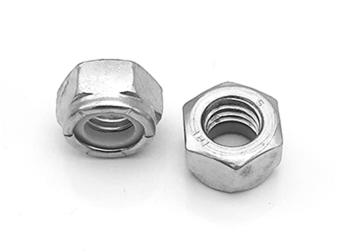okt . 07, 2024 02:33 Back to list
what is a clinch nut
Understanding Clinch Nuts What They Are and Their Applications
In the realm of fastening technologies, the clinch nut is an often-underappreciated yet essential component in various industries. It serves as a versatile solution for creating strong, reliable connections in applications ranging from automotive manufacturing to electronics assembly. This article delves into the definition, functionality, and benefits of clinch nuts, along with their specific applications.
What Is a Clinch Nut?
A clinch nut is a type of fastener primarily designed to be permanently attached to a thin sheet of material, typically metal. It features an outer flange and internal threads, allowing for a bolt or screw to be inserted into it. The installation process involves deforming the surrounding material, effectively clenching the nut in place. This creates a robust connection that can withstand vibration and stripping, which is particularly important in industrious environments.
The design of a clinch nut allows it to be used in materials that are too thin to support conventional nuts or when space constraints limit the use of traditional fastening techniques. The equivalently low profile of clinch nuts minimizes added bulk, thus maintaining a sleek design in finished products.
How Do Clinch Nuts Work?
The installation of clinch nuts is typically performed using a clinching tool or machine. This specialized equipment applies force to the nut, causing the surrounding material to deform and create an interference fit. This process locks the nut in place, ensuring that it won't loosen over time, even under force or vibration. The ability to anchor the nut without the need for additional hardware (like a backup washer) simplifies the assembly process significantly.
Once installed, the clinch nut provides female threads that allow for easy and repeated attachment of bolts or screws. This feature is particularly beneficial in assembly lines where components may need to be replaced or serviced frequently.
Advantages of Using Clinch Nuts
what is a clinch nut

One of the primary benefits of using clinch nuts is their ability to provide a strong and reliable fastening solution in thin materials. Unlike traditional nuts that may require additional support or a thicker substrate, clinch nuts can be securely affixed in sheets as thin as 1mm. This reduces the overall weight of assemblies, which is increasingly crucial in sectors like aerospace and automotive manufacturing where weight and efficiency are key considerations.
Another advantage is the reduction in assembly time and cost. The installation of clinch nuts is typically faster than that of traditional nuts and bolts. Since the nut is permanently anchored to the material, assembly lines benefit from fewer components and quicker fastener engagement. This can lead to significant labor savings in high-volume manufacturing processes.
Additionally, clinch nuts offer excellent resistance to shear and tensile forces. This durability makes them an appropriate choice for applications that experience significant mechanical stresses, like automotive frames or electronic enclosures. Their design minimizes the risk of unintentional loosening, which is critical for maintaining structural integrity.
Applications of Clinch Nuts
Clinch nuts find utility in a diverse range of applications. In the automotive industry, they are frequently used to fasten body panels and chassis components where strong, lightweight connections are essential. In electronics, clinch nuts may be used to secure housing enclosures or mounting brackets, providing robust methods for equipment assembly without compromising space or weight.
Moreover, clinch nuts are also employed in furniture manufacturing, HVAC systems, and various consumer electronics, showcasing their adaptability across different sectors. Their ability to work with various materials, including aluminum and stainless steel, further enhances their versatility.
Conclusion
In summary, clinch nuts play a crucial role in modern fastening technologies. Their unique functionality, coupled with significant advantages in assembly efficiency and structural integrity, makes them indispensable components across multiple industries. As designs continue to evolve and industries strive for greater efficiency, the relevance and application of clinch nuts are sure to expand, solidifying their place in the future of manufacturing. Understanding clinch nuts not only highlights their importance but also informs better design practices that prioritize strength and cost-effectiveness.


